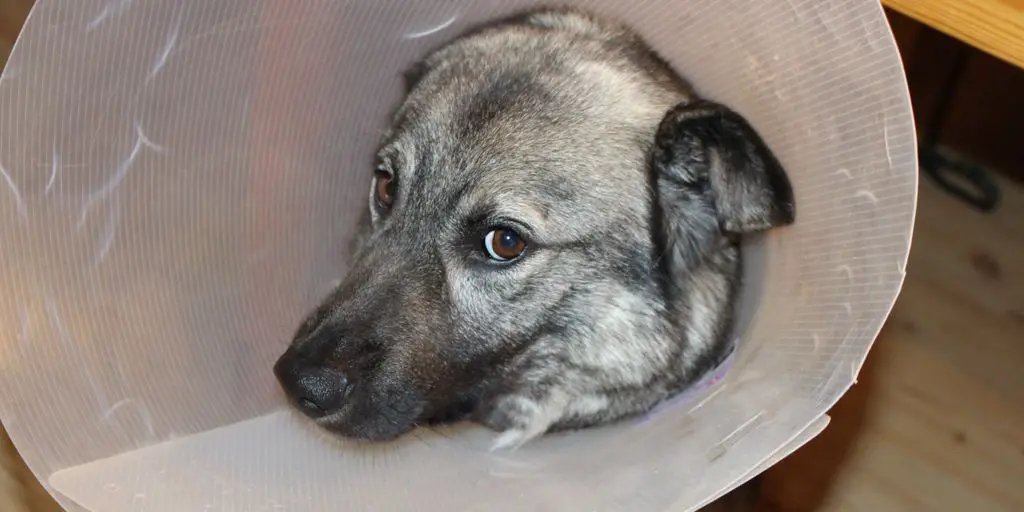Respiratory infections in dogs are a common health issue that can range from mild to severe. Understanding the symptoms, causes, and treatment options is crucial for ensuring the well-being of your furry friend. This article delves into the various aspects of respiratory infections in dogs, offering insights on how to manage and prevent these conditions effectively.
Key Takeaways
- Recognize symptoms such as coughing, sneezing, nasal discharge, and labored breathing to identify respiratory infections early.
- Various pathogens, including bacteria, viruses, and fungi, can cause respiratory infections in dogs.
- Respiratory infections can spread through direct contact, airborne transmission, and contaminated surfaces.
- Treatment options range from medications and supportive care to natural remedies, depending on the severity and cause of the infection.
- Preventative measures like vaccinations, good hygiene practices, and avoiding contact with sick dogs can significantly reduce the risk of respiratory infections.
Common Symptoms of Respiratory Infections in Dogs
When it comes to respiratory infections in dogs, there are a few telltale signs you should be on the lookout for. Recognizing these symptoms early can make a big difference in your dog’s recovery.
Coughing and Sneezing
One of the most obvious symptoms is coughing. This can range from a dry, hacking cough to one that produces mucus. Sneezing is another common sign, often accompanied by nasal discharge and irritated nostrils.
Nasal Discharge
If you notice your dog has a runny nose, it could be a sign of a respiratory infection. The discharge can be clear, cloudy, or even tinged with blood. Keep an eye on the color and consistency, as this can help your vet diagnose the issue.
Labored Breathing
Labored breathing is a serious symptom that shouldn’t be ignored. This could manifest as shallow breathing, rapid breathing, or excessive panting. In some cases, you might even hear wheezing or grunting sounds when your dog exhales.
Always monitor for signs of illness and seek vet care if you notice any of these symptoms. A quick response can make all the difference in your dog’s health.
Causes of Respiratory Infections in Dogs
Respiratory infections in dogs can be caused by a variety of pathogens, including bacteria, viruses, and fungi. Understanding the root cause is essential for effective treatment and prevention.
Bacterial Infections
Bacterial infections are a common cause of respiratory issues in dogs. Bordetella bronchiseptica, for example, is a well-known bacterium that leads to kennel cough. Other bacteria can also infect the respiratory tract, causing symptoms like coughing and nasal discharge.
Viral Infections
Viruses are another major culprit behind respiratory infections in dogs. Canine distemper virus and parainfluenza virus are two significant viral agents. These viruses can cause severe respiratory symptoms and are highly contagious among dogs.
Fungal Infections
Fungal infections, though less common, can also affect a dog’s respiratory system. Fungi like Blastomyces, Histoplasma, and Aspergillus can lead to serious respiratory conditions. These infections often require specialized treatment and can be challenging to manage.
It’s crucial to consult a vet for a comprehensive guide on dog collar rash treatment. Emphasizes prevention, symptoms, causes, and consulting a vet. Importance of diet, parasite control, and proper collar fit highlighted.
How Respiratory Infections Spread Among Dogs
Respiratory infections in dogs are typically highly contagious and can spread rapidly, especially in environments where dogs are in close quarters. Let’s break down the main ways these infections spread.
Diagnosing Respiratory Infections in Dogs
When it comes to diagnosing respiratory infections in dogs, a combination of methods is often used to get a clear picture of what’s going on. A thorough veterinary examination is the first step. Your vet will look for signs like nasal congestion, labored breathing, and systemic symptoms such as fever and lethargy. They’ll also ask about your dog’s medical history, including vaccination status and any recent changes in their environment.
Veterinary Examination
During the physical exam, the vet will check for signs of nasal congestion, respiratory efforts, and systemic symptoms like fever and lethargy. They’ll also ask about your dog’s medical history, including vaccination status and any recent changes in their environment.
Diagnostic Tests
Diagnostic tests are crucial for pinpointing the exact cause of the infection. These may include:
- Nasal Swabs and Cultures: Useful for identifying infections like Canine Influenza and Bordetellosis.
- Chest Radiographs: X-rays can reveal abnormalities in the lungs and airways.
- Bronchoscopy: This procedure allows the vet to see the airways and collect samples, especially useful for dogs with a chronic cough.
Identifying the Pathogen
Identifying the specific pathogen causing the infection is essential for effective treatment. This might involve lab tests to determine whether the infection is bacterial, viral, or fungal. Sometimes, the pathogen can be elusive, making it challenging to find the right treatment immediately.
It’s important to remember that diagnosing respiratory infections can be complex and may require multiple tests to get an accurate diagnosis. Always follow your vet’s recommendations for the best outcome for your furry friend.
Treatment Options for Respiratory Infections
When it comes to treating respiratory infections in dogs, there are several options available. The right treatment plan will depend on the severity of the infection and the underlying cause. Here are some common treatment options:
Medications
Medications are often the first line of defense. Antibiotics are commonly prescribed for bacterial infections, while antiviral drugs may be used for viral infections. Cough suppressants can provide relief and prevent secondary issues like an inflamed throat. In some cases, nebulization therapy is recommended to deliver medication directly to the lungs via a mist.
Supportive Care
Supportive care is crucial for helping your dog recover. This can include fluid therapy to keep them hydrated and supplemental oxygen if they are having trouble breathing. In severe cases, hospitalization may be necessary to provide intensive care, including intravenous fluids and possibly oxygen therapy.
Natural Remedies
For those who prefer a more holistic approach, natural remedies can also be effective. Herbs with expectorant or anti-inflammatory properties can aid in respiratory issues. Homeopathy and acupuncture are other options that can help manage symptoms. However, always consult with a veterinarian before administering any natural remedies to your dog, as they can interfere with medication or be harmful if not properly dosed.
It’s essential to consult your vet to determine the best course of action for your dog’s specific condition. They can help you navigate the various treatment options and ensure your furry friend gets the care they need.
Home Care Tips for Dogs with Respiratory Infections
When your dog is dealing with a respiratory infection, providing the right home care can make a big difference in their recovery. Here are some tips to help you manage their symptoms and keep them comfortable.
Preventing Respiratory Infections in Dogs

Prevention can go a long way in keeping your dog free from respiratory issues. Some key measures include:
Vaccinations
Keeping your dog up-to-date on vaccinations is crucial. Vaccines for distemper and flu are particularly important. Regular veterinary wellness visits can also help in early detection and prevention.
Good Hygiene Practices
Maintaining good hygiene is essential. Regularly clean your dog’s living areas and keep your pet clean to reduce the risk of infections. This includes washing their bedding and toys frequently.
Avoiding Sick Dogs
Limit your dog’s contact with sick dogs and avoid environments with a high likelihood of contagion, such as kennels or dog parks during outbreaks. This can significantly reduce the risk of your dog contracting a respiratory infection.
Prevention is always better than cure. By taking these steps, you can help ensure your dog stays healthy and happy.
When to Seek Veterinary Care
Knowing when to take your dog to the vet can be tricky, but there are some clear signs that you shouldn’t ignore. Early detection and treatment are crucial for managing respiratory infections effectively. If you notice any severe symptoms, it’s time to consult your veterinarian immediately.
Understanding the Risks of Untreated Respiratory Infections
When it comes to respiratory infections in dogs, ignoring the symptoms can lead to serious health issues. Early detection and treatment are crucial to prevent complications. Let’s dive into some of the risks associated with untreated respiratory infections in our furry friends.
Special Considerations for Puppies and Senior Dogs

When it comes to respiratory infections, puppies and senior dogs need extra attention. These age groups are more vulnerable and can experience more severe symptoms. Understanding their unique needs can help in managing their health better.
Conclusion
Taking care of your dog’s respiratory health is crucial for their overall well-being. By being aware of the symptoms and knowing how to manage respiratory infections, you can ensure your furry friend stays happy and healthy. Always keep an eye out for signs like coughing, sneezing, and labored breathing, and don’t hesitate to consult your vet if you notice anything unusual. With the right care and attention, you can help your dog recover quickly and prevent future infections. Remember, a healthy dog is a happy dog!
Frequently Asked Questions
What are the common symptoms of respiratory infections in dogs?
Common symptoms of respiratory infections in dogs include coughing, sneezing, nasal discharge, labored breathing, eye discharge, fatigue, lack of appetite, and fever.
How do respiratory infections spread among dogs?
Respiratory infections in dogs can spread through direct contact with an infected dog, airborne transmission of pathogens, or contact with contaminated surfaces.
What causes respiratory infections in dogs?
Respiratory infections in dogs can be caused by bacterial, viral, or fungal pathogens. Common culprits include Bordetella bronchiseptica, canine influenza virus, and fungal spores.
How are respiratory infections in dogs diagnosed?
Diagnosing respiratory infections in dogs typically involves a veterinary examination, diagnostic tests like blood work and X-rays, and identifying the specific pathogen causing the infection.
What are the treatment options for respiratory infections in dogs?
Treatment options for respiratory infections in dogs include medications such as antibiotics or antivirals, supportive care like hydration and rest, and natural remedies like herbal supplements or steam therapy.
How can I care for my dog at home if they have a respiratory infection?
Home care tips for dogs with respiratory infections include keeping them comfortable, ensuring they stay hydrated and well-nourished, and monitoring their symptoms for any signs of worsening.
How can respiratory infections in dogs be prevented?
Preventing respiratory infections in dogs involves regular vaccinations, practicing good hygiene, and avoiding contact with sick dogs.
When should I seek veterinary care for my dog’s respiratory infection?
You should seek veterinary care if your dog exhibits severe symptoms, has a prolonged illness, or develops secondary complications like pneumonia.


